Shipment and Trailer Management |
|---|
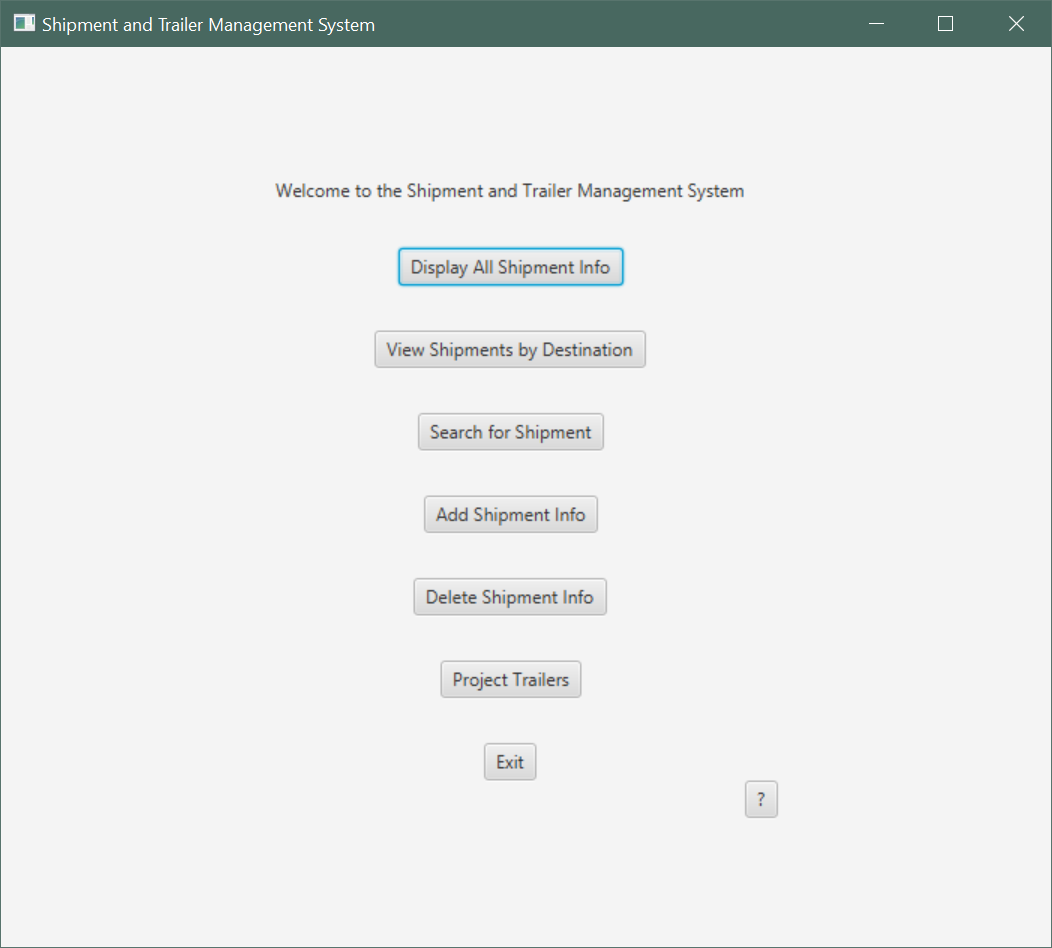
|
| This the alpha version of a shipping management system I made in Java. Currently, it creates a basic database that stores necessary information required to calculate the number of trailers needed to send the shipments registered in the system out. |

|
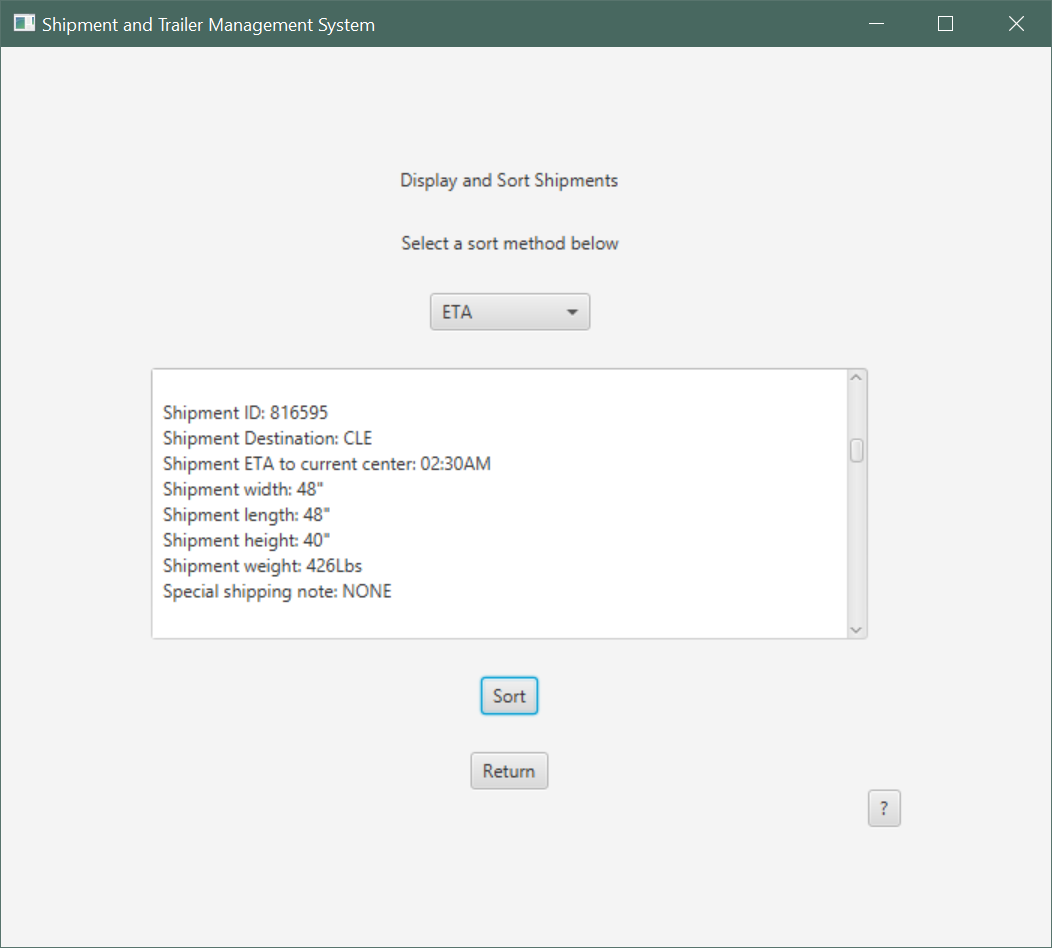
|
|
|---|---|---|
| This menu sorts all the shipments based on standard shipping information | It then generates a sorted list and displays it for the user to view | |
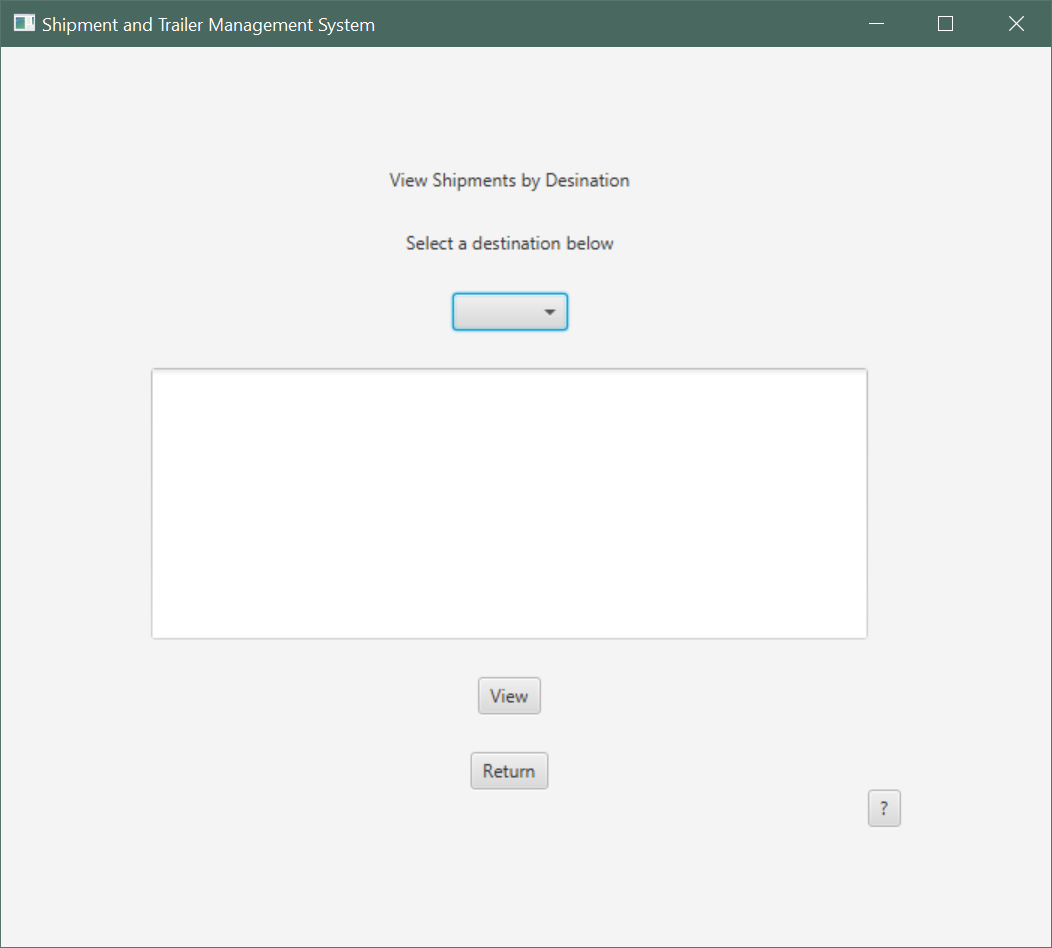
|
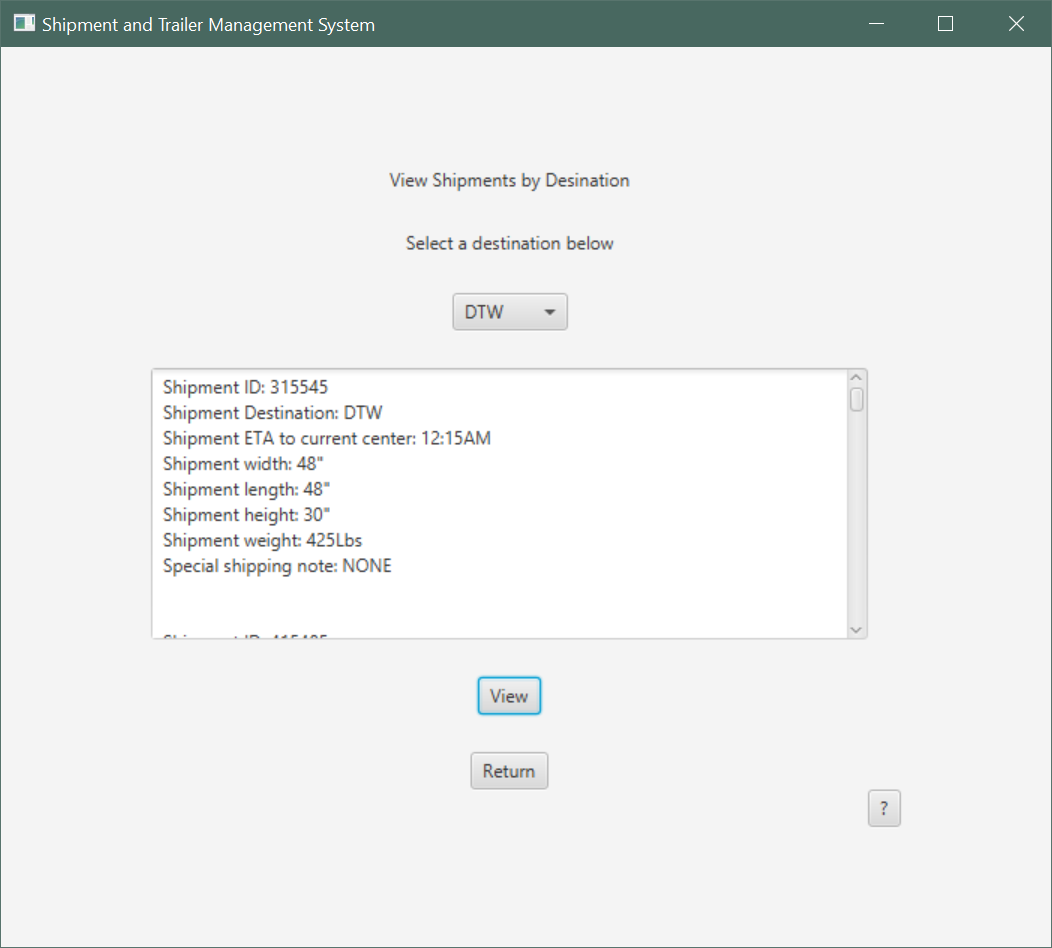
|
|
| Another sorting option allows you to only view shipments going to a specific location | This can also be applied to the previous sorting option. The list remains sorted based on the option you chose previously. | |

|

|
|
| This menu is where you add a new shipment to the Database. Each field shows the format and is based on US standard measurements | After your shipment information is entered, you can click add and it will display a message telling you the shipment has been added | |
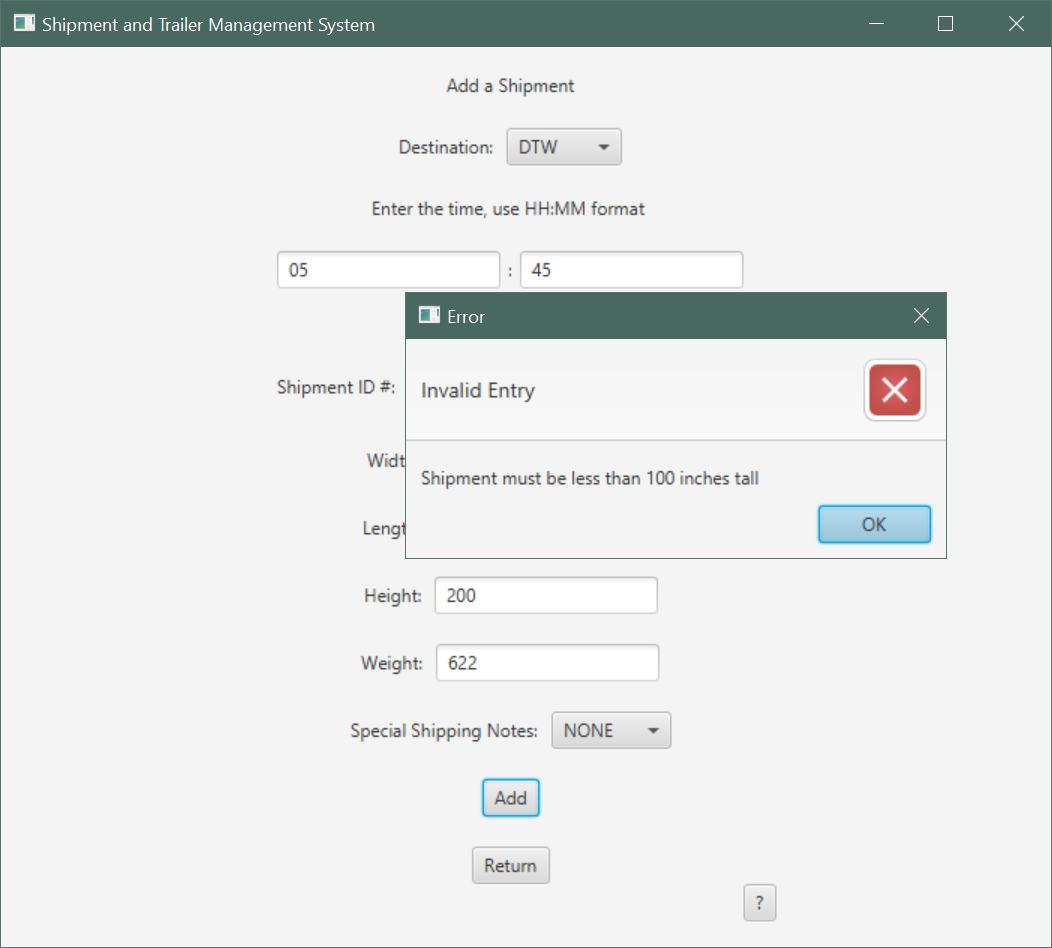
|
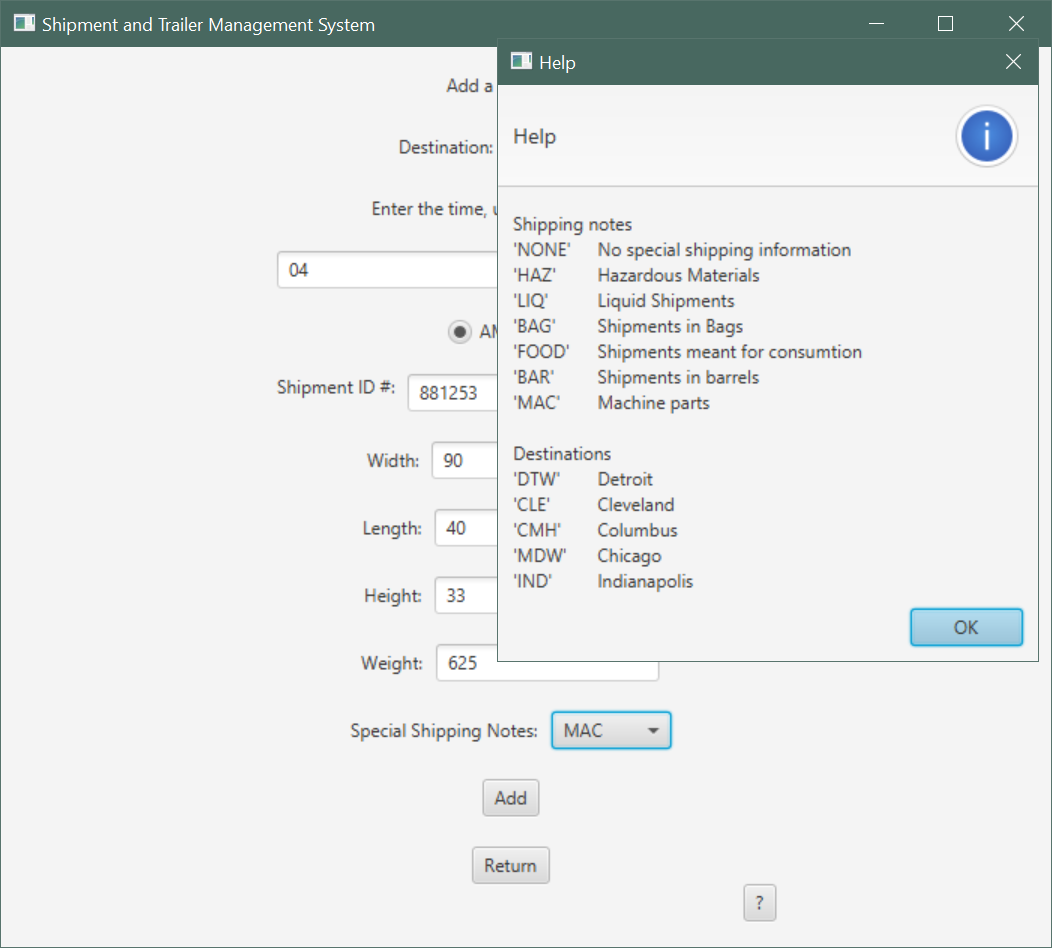
|
|
| The program verifies the information is accurate and displays a message if you enter data that cannot be handled properly by the application or if you have forgotten an entry. In this example, it shows that the trailer cannot handle shipments over 100 inches tall | I have added a help button located at the bottom right of every menu which displays a key. These are all just examples and can be made more specific to the company they are designed for. | |

|

|
|
| If you have a shipment ID to which you would like to find information about, you can use the search function | The program then searches for the ID number and display the the information on the screen | |
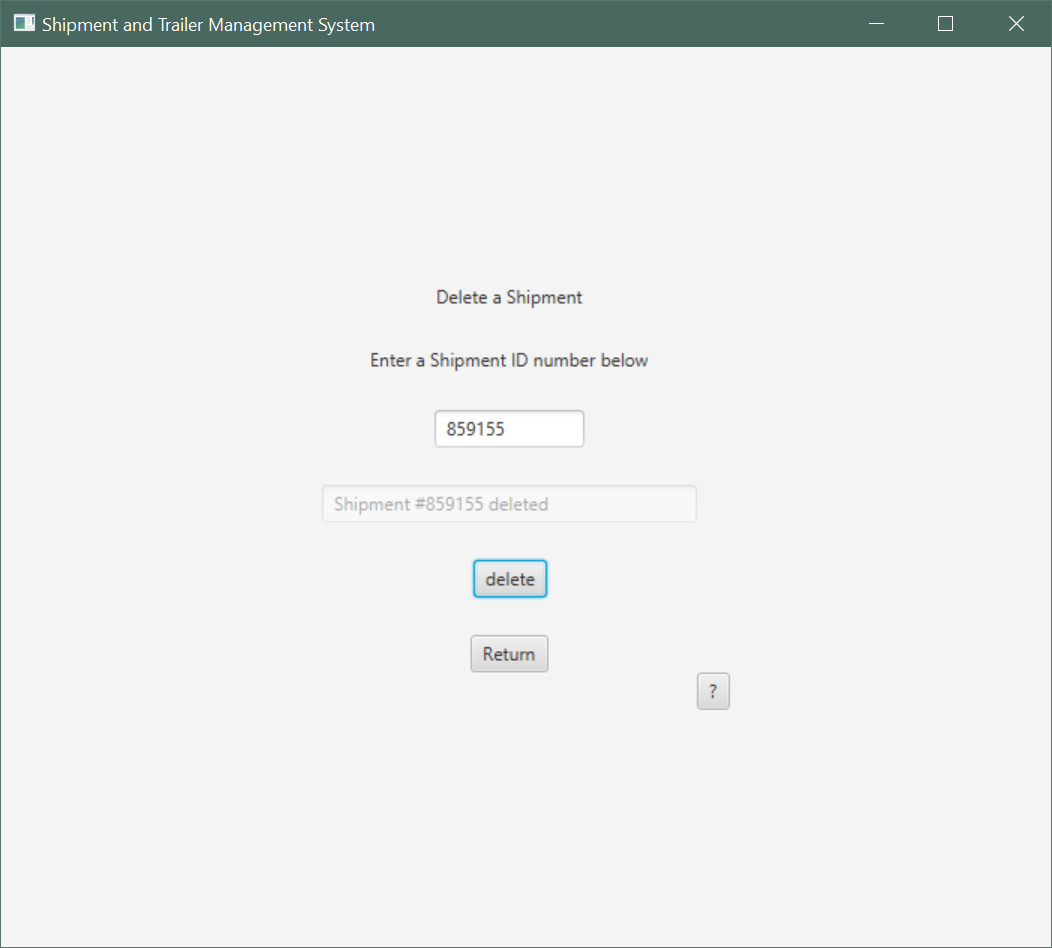
|
||
| The delete menu works the same as the search function but will delete the shipment from the database instead | ||
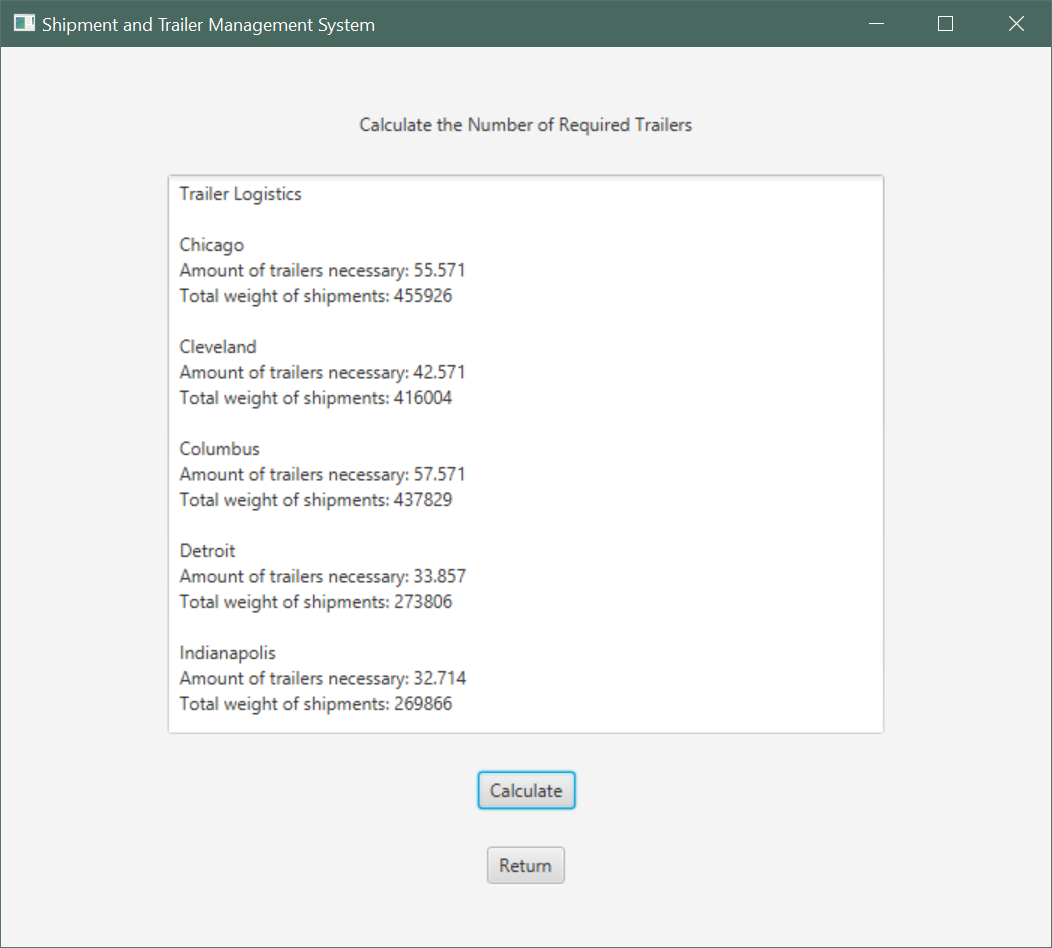
|
||
| Before calculating the number of trailers needed, the shipments are automatically sorted by ETA then divided into individual categories by destination. This makes a big difference between my algorithm and others like it. Other programs tend to calculate based on best fit where this is more based on first come first serve with some best fit elements. This mimics real world application getting you more accurate results. | ||
